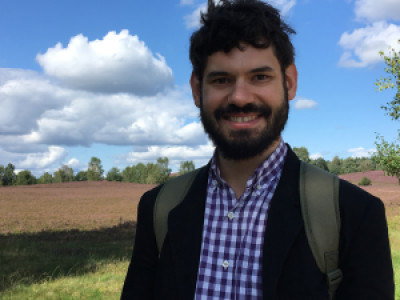Interview with Mark Kurlansky
Description
Vocal Characteristics
Language
EnglishVoice Age
Young Adult (18-35)Accents
North American (General)Transcript
Note: Transcripts are generated using speech recognition software and may contain errors.
the Industrial Revolution changed every aspect of American life, and food was no exception. In the late 19th and early 20th century, Clarence Birdseye, the founder of the Birds Eye Frozen Food Company, was a pioneer of the factory food culture that continues today. Little had been written about Bird's eye until Mark Kurlansky wrote a biography released this past May. You know the ideas he had an ideas he helped develop, you know, are now used for things besides frozen food the way you can get fish and produce and things are all over the world. Uh, flown in into your local market very much came out of his concept of frozen food, even though now, because of greater transportation, you can do it with things that aren't even protein. Kurlansky had encountered birds, eyes, name and work while researching his previous books, Cod and Salt. He didn't invent frozen food. It just made it a lot better and a lot more feasible. From an industrial standpoint, three idea has been around for some time, and, uh, you know, a lot of the things that he used ways of freezing, for example, have been worked out by other people he just put a lot of things together. Kurlansky says Birds Eyes Goal was to create a system of making food mawr available for Americans via new technologies. He believed the farms, the future, should be efficient and industrial and wanted to freeze food to extend its freshness in developing frozen food. You know, he had very clear in his mind that he wasn't just trying to sell frozen food. He was trying to develop an industry which he wanted to call general food because he wanted Thio be comparable to General Motors or General Electric. In that way, birds I was very much man of his time, the big figures of his childhood, where people like Alexander Graham Bell and Thomas Edison and you very much modeled himself after them. Birds, eyes ideas mainly came from his travels to Labrador as part of a US expedition. While eating preserved vegetables he found to be substandard, he got the idea of flash freezing food, but he had a much more deep seated interest in eating. It's interesting that a number of people in this family showed an interest in food, and a sister who was a pioneering nutritionist in another sister who had a candy store. One thing I wondered about that. I wish I could have found out more about those exactly what kind of household they grew up in and why, you know, kids had something to have so much interest in food. Kurlansky is study of birds. I mainly came from personal journals preserved at the University of Massachusetts Amherst. Inside the journals, Birdseye chronicled his travels hunting and trapping animals for museums. The journals were often vivid in detail. You know, I could see his interesting food. He wrote a lot about food until he was married. Thes diaries were remarkably methodical. Uh, man had something to do with not having much else to do at night because that was married. They were less so. But there is a heat index. The mall. I mean, they're the hand written journals, and there they have indexes in the back, which I felt he had almost done for me. Also in the journals were recipes often using odd ingredients such as rodent meat. And he loved the idea of eating things that most people didn't need, I think, and he I love to tell people that the weird thing that he was eating. I imagine that he hoped they would be Oh, but he was also very interested in all kinds of proved. It was always writing about it, asking how things were made in all, Kurlansky says. Birds. I was another curious character of the industrial age who helped mechanize American food production and make it more efficient. But that sort of concept was in vogue in the 19th century. Today is the age of organic and slow foods. The funny thing is that food has gone full circle, you know. So now people talk about being local force and, you know, getting food from small local farms. You know, his vision was to get away from small local farms, you know, introduced industrial processes, make farming big and will not be confined to what's produced locally but be able to get food from all over the world. So what might Bird's eye, who died in 1956 think of food today? I don't know. I mean, I would love to have that conversation with him. You know, he always said that his frozen food was just like fresh food. You know what he was talking about was that relative to what else was available relative to the old fashioned kind of frozen food or salted food or canned food. It's frozen Food was much closer to trash, but nowadays that we can fly in things from anywhere in the world frozen. But we can also fly them in from anywhere in the world fresh. I mean, I think he would find that pretty exciting.
